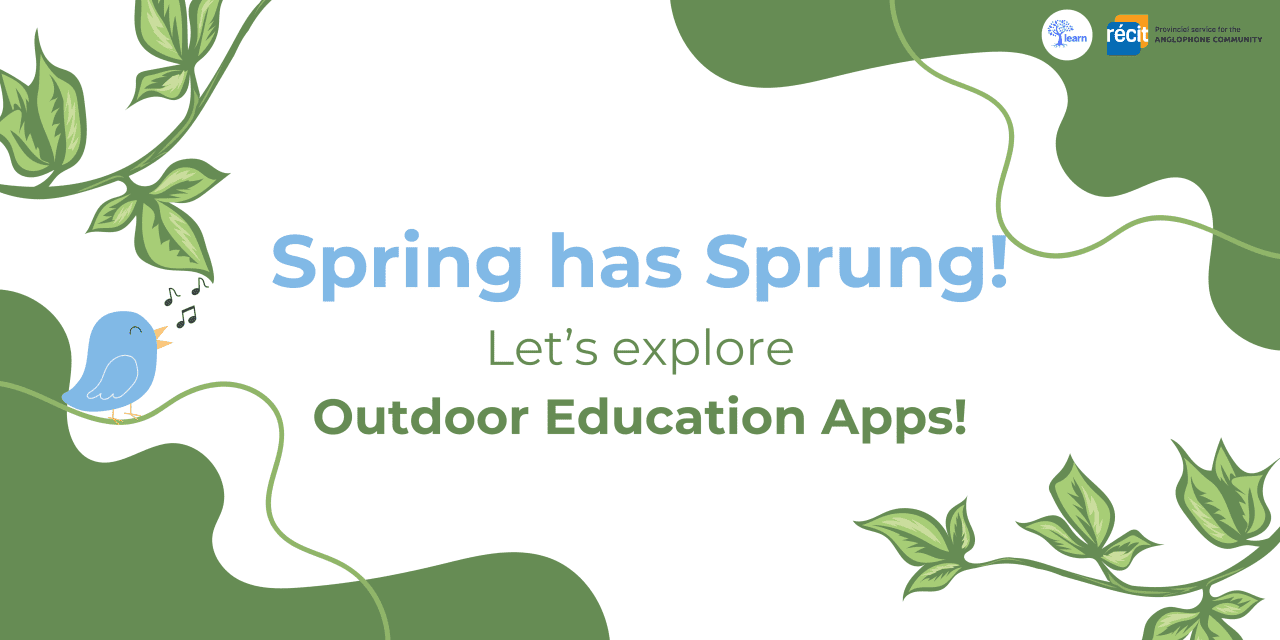We recently held an outdoor education Open Creative Space Day at LEARN (you can access the presentation slides here). It was inspiring to hear how classes were venturing outside to pursue pedagogical intentions linked to the Quebec curriculum. From estimating and measuring natural objects to exploring physics concepts through rocket launches, students of all levels and abilities can benefit from hands-on learning outside.
While I could go on about the many benefits of outdoor education, I want to share some exciting apps I’ve been exploring since the OCS day in the hopes of getting you and your students outside ASAP! These apps are great ways to activate digital competency and balance screen time and real-world learning. Let’s jump into the possibilities:
Merlin Bird ID
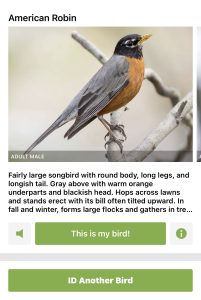
We discovered the American Robin was tweeting around the townships this April and May using the Merlin Bird Id app!
This fun and free app allows you to identify birds by song or image. You can access a list of birds you will likely find in your area and information about each bird, including what month they are in your area, what sounds they make, and short, accessible descriptions of their habitats, appearance, prey & predations.
As an elementary teacher, I might use this application in science class to teach about different birds and explore their adaptations and life cycles. Students could research the bird species they identify. They could also build birdhouses or feeders, gather data about the birds to use in math class, or write different kinds of bird-related text. How fun would it be to write fiction text about a bird’s migration, describing all the funny things they might see and do along their way?
Seek
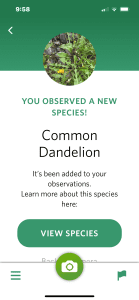
An exciting discovery using the Seek app! Common Dandelions emerging in abundance!
Seek lets you recognize plants, animals, insects, fungi, and other organisms through photos. Unlike other apps, like Google Lens, which attempt identification with just a single image, Seek prompts you to provide additional pictures for accuracy if it is uncertain how to identify something. I would use this to discuss the importance of fact-checking and double-checking work with my students!
The app contains fun identification challenges. You also progress through achievement levels by identifying different species around you, which is a super engaging gamification element! Another cool thing about this app is that it gives you a taxonomy breakdown for everything you correctly identify. This breakdown is handy if you are teaching about animal or plant classification! As you can already tell, I love identification apps because there are many curricular connections. You could have students prepare oral presentations to describe their findings in language classes and explore the traditional uses and significance of plants and animals for different peoples in social science class! Students could even host a playground walk for community members or other classes interested in learning more about plants and animals native to the territory.
Plantum
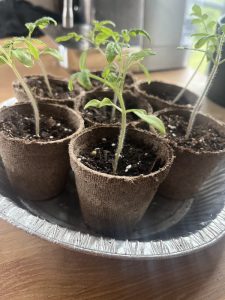
Did you know that the leaves and stems of tomato plants contain solanine that is toxic to cats and dogs? We didn’t, until we used the Plantum app!
Plantum has to be one of my most frequently used apps! Like Seek, it allows you to identify plants quickly. However, the Plantum app. can also diagnose your plant’s health, which is handy for school gardens! This application is free, with premium features available via a paid subscription. University students and educators can register to get free premium access. Pairing this app with a plant observation journal can be a fantastic way to document diagnoses and any adjustments you make to your plant care routine.
Goosechase
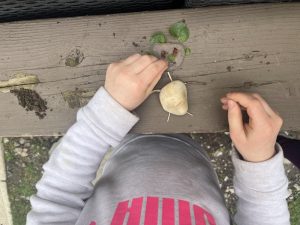
One of our scavenger hunt tasks was to create a character with natural elements and then write a short text to describe the character!
My colleague Lexi Tucker introduced me to this fun app, which allows you to create scavenger hunts. Educators can create tasks for students (or colleagues) to complete. Participants can join your scavenger hunt with a join code. Once joining, participants can submit different kinds of evidence to show they have completed the tasks. There are many fun example hunts online to inspire you, like this Nature Scavenger Hunt for students. You can search for different templates here. You could even have students create and exchange scavenger hunts to practice various concepts!
Additional Resources
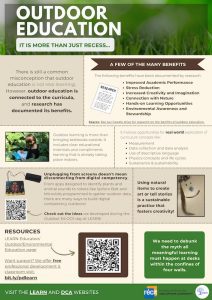
Share this infographic (available via the link above) with colleagues and parents to help debunk common myths about outdoor education!
While these four apps are quickly becoming my favourite go-to’s, there are plenty of others you can use to address your pedagogical intentions outside year-round. I encourage you to get outside and start exploring!
Want more support getting started? You can fill out our Professional Development Request Form, and a member of our team can give you an extra hand! We also created an infographic you can share with parents or colleagues to inform them about outdoor education and potentially invite them to come help out. We also have an Outdoor and Environmental Education page on the LEARN website, where you can find other resources to support your students’ outdoor learning!

